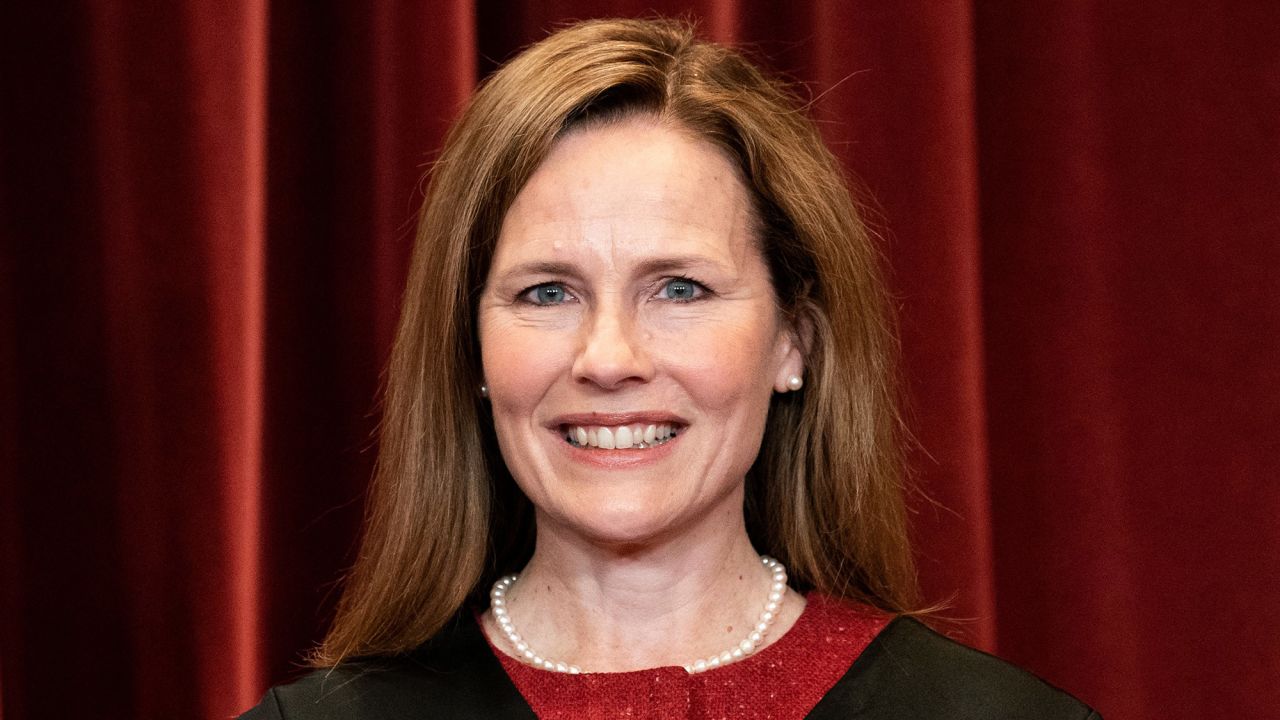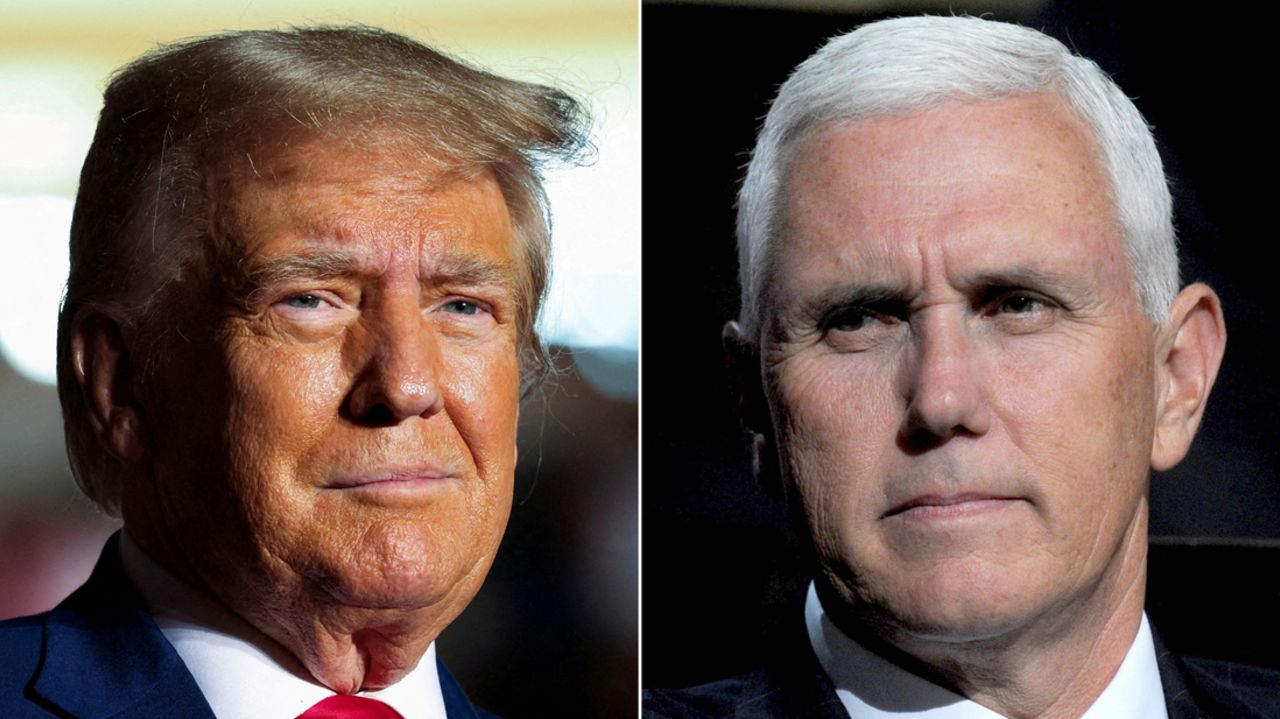CNN
–
Since being confirmed in 2005, Chief Justice John Roberts has made it his mission to separate the Supreme Court from the political branches. However, the court is perhaps more ensnared in politics than ever before – and at the hands of the president himself.
The former star appellate attorney, once united as the smartest person in the room, is confused by the realities of Donald Trump.
Roberts was shaken by the public backlash to his decision to grant Trump substantial immunity from criminal prosecution. His protest that the case was about the presidency, not Trump, carried little currency.
Unlike most judges, he did not make any public appearances during the summer. Colleagues and friends who saw him said he looked particularly tired, as if he was carrying more weight on his shoulders. On Monday, after Roberts took to the bench to officially open a new session, he followed a familiar script and controlled any emotion.
It’s a difficult time for America’s highest court, as divisive rulings increase and controversy continues over the lack of ethical rules enforceable by judges.
Roberts, who will turn 70 in January, faces a new slate of high-profile cases to be heard in the coming months, including disputes over transgender rights, gun control, the death penalty and a possible return to Trump’s case. But perhaps the most important immediate test of Roberts’ leadership is the legal battle surrounding the Nov. 5 presidential election and vote counting.
The Roberts court is largely because of decisions that the chief justice: for Trump and other Republicans, have aligned with the Republican political agenda. Against voting rights and racial affirmative action. Contrary to federal environmental, public health, and consumer regulations.
Roberts’ pattern of protecting Republican interests was set by his decisions in cases such as 2013’s Shelby v. Holder (striking down part of the Voting Rights Act) and 2019’s Roche v. Common Cause (preventing US courts from preventing political parties from forming to win the voting districts.
But the political subtlety deepened in the settlement of former President Trump’s legal case for alleged interference in the 2020 election. The court’s lengthy action, even before the July 1 decision, ensured that Trump’s trial would not take place before he re-applies to the court. White House, now against Democratic Vice President Kamala Harris.

How Amy Cooney Barrett broke with Judge Roberts on Trump’s immunity ruling
According to several polls, the position of the Supreme Court has decreased. For example, in July, after Trump’s immunity decision was released and the annual session ended, less than half of Americans (47%) expressed a favorable opinion of the court, according to a Pew Research Center poll.
This favorable rating was 23% lower than in August 2020, when a conservative majority on the nine-member bench came to power. Part of the decline no doubt follows the court’s 2022 decision to strike down abortion rights, a decision Roberts partially opposed.
Answers predictably varied based on the people’s politics. Pew reported that Republicans had a much more favorable view of the Supreme Court than Democrats.
Now, as a new era begins and a new round of election litigation begins, the question is whether Roberts will strengthen his conservatism or readjust as he has always done. In 2020, for example, he hedged his opposition to abortion rights, backing away from previous sentiments against Obama-era protections for some undocumented family immigrants.
He clearly cares about his heritage.
“You wonder whether you’re going to be John Marshall or Roger Taney,” Roberts told a law school audience in 2010, referring to the 19th-century chief justice and second chief justice who wrote Dredd Scott in 1857. A decision that slaves were not citizens. The answer is, you certainly won’t be John Marshall. But you want to avoid the risk of being Roger Taney.
Roberts declined CNN’s request for an interview.
Trump, whose pending criminal prosecution stemmed from his 2020 attempt to overturn the credible results that would have put Joe Biden in the White House, has already engaged in a series of lies about state voting laws and other election practices this term. is In one of her boldface lies, she claimed that Harris would only beat her if she cheated.
Dozens of Republican lawsuits against state election practices have made their way through lower courts. Any litigation that really has any bearing on the Trump-Harris battle is likely to force judges to make quick decisions against tight deadlines.
Another Bush v. Gore court case is likely. In that 2000 test of which candidate could claim Florida’s crucial electoral votes, the court ruled for then-Texas Governor George W. Bush against then-Vice President Al Gore. The 5-4 decision fell along the justices’ ideological, if not political, lines.
Roberts, who served in the Reagan and George H.W. Bush administrations and was in private practice at the time, assisted George W. Bush’s legal team. After Bush took office, he appointed Roberts to the United States Court of Appeals. In 2005, he promoted Roberts to the Supreme Court to succeed William Rehnquist, for whom Roberts had once worked.
In an earlier interview, Roberts told C-SPAN, “The most important thing for people to understand is that we are not a political branch of government. “They don’t pick us if they don’t like what we do, it’s more or less too bad.”
In 2018, when Roberts tried to counter Trump’s disparaging remarks against federal judges, the chief justice declared that “we don’t have an Obama judge or a Trump judge,” but rather “committed judges doing their best to ensure equal pay for those that appear in front of them to do.” ”
“I’m sorry, Chief Justice John Roberts, but you really have ‘Judge Obama,’ and they have a very different view than the people who are responsible for our nation’s security,” Trump responded that same day.
That November 2018 conflict, sparked by controversy over federal asylum policy, showed Trump’s readiness to take on any conceivable adversary. Roberts said nothing more against Trump at the time and has since avoided any similar public rebuke.
In an era of heightened polarization and growing public distrust of government, Roberts does not seem to live in the world he once did when he first took office.
While he won the court’s majority for the most important decisions of the last session, his power to persuade the public was dissolving as it reacted to Trump’s immunity case.
Special counsel Jack Smith has accused Trump of committing multiple crimes to stay in office, including lying to state officials to ignore actual vote counts, trying to organize fake state voter rolls and leading a group to March to the US Capitol on January 6. 2021, where the election results were supposed to be confirmed.
Roberts, along with five fellow conservatives, found that the former president enjoys presumptive, if not absolute, immunity for actions related to his official acts. Roberts’s view of official acts, as opposed to private acts, was broad.
But the head of the judiciary said such measures are important to protect the office of the president: “Unlike the political branches and the general public, we cannot focus solely or even primarily on the exigencies of the moment. … Our view should be more far-sighted.”
The dissenting justices said the majority’s reasoning flies in the face of precedent holding the president accountable.
Justice Sonia Sotomayor wrote for the liberal dissent: “Relying on its flawed wisdom of requiring “bold and unequivocal action” by the president, the Court grants former President Trump all the immunity he sought and more.”
Law professors rejected the majority’s reasoning, and Princeton history professor Sean Wilents, writing in the New York Review of Books, went so far as to compare the decision to the Dred Scott case. He called Trump v. United States “the most extensive judicial overhaul of the American presidency in history.”
Roberts’ former law clerks have defended him to varying degrees. Attorney Erin Murphy, now in private practice, said: “I think a lot of the reaction to this decision has been a bit overblown.
“The Trump immunity case is less about Trump and more about not opening the door to successive administrations ‘after previous presidents,'” he said at a recent Georgetown University Law Center meeting.
Roman Martinez, also Roberts’ former secretary in private practice, said there was more to the decision than has been widely interpreted.

New evidence about Trump’s alleged response when he learned Pence was in danger on Jan. 6
“There is uncertainty about the scope of immunity,” he said. “There are question marks on various aspects of the opinion about what that means. … We haven’t seen the end yet.”
Smith has rewritten the indictment to emphasize the unofficial nature of Trump’s campaign efforts since the last election, as he now previously argued. U.S. District Judge Tanya Chutkan said the case could proceed. Chotkan will decide which parts of Smith’s indictment can be tried, without overruling the court’s ruling that the former president is immune from prosecution for official, not private, conduct.
Last week, Chatkan published Smith’s 165-page proposal to grant immunity for Trump’s actions in trying to overturn the results of the 2020 election. Smith has argued that Trump’s challenge to the results stems from his private actions as a desperate candidate to retain the White House.
Harvard Law School professor Richard Lazarus, a longtime friend of Roberts, spent time with Roberts in July shortly after Trump’s decision was issued. They taught together in Galway, Ireland, as part of a Boston New England law program.
Lazarus said in an August op-ed for The Washington Post that Roberts’ opinion “offers a clear and surprising road map for a successful prosecution of Trump.”
“The bottom line is clear,” Lazarus wrote. “Whether you are outraged or sympathetic to the Supreme Court’s ruling on presidential immunity, it leaves the former president wide open for successful criminal prosecution.”
Whether that happens is now beyond the hands of Roberts and the Supreme Court as Chotkan considers new cases. And it is possible that Trump’s case is more in the hands of the voters.
#Analysis #election #approaches #John #Roberts #remains #confused #Donald #Trump #CNN #politics